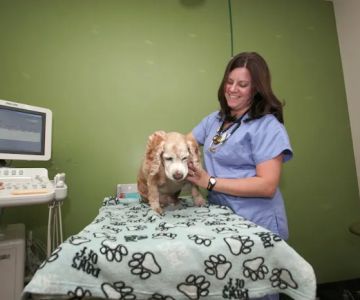Understanding Overtime for Veterinary Continuing Education
Veterinary hospitals, like many other businesses, have to navigate a complex landscape when it comes to employee compensation, including whether to pay overtime for continuing education. Continuing education is crucial for veterinary professionals to stay updated with the latest medical techniques and best practices, but questions often arise: Does continuing education count as paid time, and should it be compensated with overtime?
What Is Continuing Education for Veterinary Professionals?
For veterinarians and other veterinary staff, continuing education involves formal or informal learning that helps them maintain certifications, improve skills, or fulfill licensure requirements. The necessity of continuing education in the veterinary field cannot be overstated. It ensures that professionals are up to date with the latest advancements in animal care, which ultimately benefits the animals they care for. But when it comes to compensation, the question is whether time spent attending educational seminars or courses should be treated as work time.
The Legalities Behind Overtime Pay for Continuing Education
When it comes to whether a veterinary hospital should pay overtime for continuing education, much depends on the classification of the employee and the nature of the time spent in education. According to the Fair Labor Standards Act (FLSA), non-exempt employees are entitled to overtime pay for any time worked over 40 hours a week. However, the key issue here is whether the time spent in continuing education qualifies as "work" time. If the education is mandatory and directly related to the employee’s job, many would argue that it should count as work time, thus qualifying for overtime pay. However, if the employee attends the education voluntarily and it is not directly related to their job, the time may not need to be compensated.
Are Veterinary Professionals Exempt from Overtime Pay?
In the United States, the FLSA provides specific exemptions for certain categories of workers, including some professionals. Veterinarians, for instance, are typically classified as exempt employees because of their professional training and advanced skills. This means they are not entitled to overtime pay for hours worked beyond the standard 40-hour workweek. However, other veterinary staff, such as technicians and assistants, are often classified as non-exempt and may be entitled to overtime pay. This distinction is important in determining whether the time spent on continuing education should be compensated.
Common Practices in Veterinary Hospitals Regarding Overtime for Education
Many veterinary hospitals have their own policies when it comes to compensating staff for continuing education. Some hospitals might provide paid time off or stipends to help cover the cost of education, while others may not offer additional pay at all. In some cases, hospitals may offer time off for educational purposes, but this time off is not necessarily paid time. It’s important for both employers and employees to be clear on the hospital’s policies regarding continuing education and compensation. For non-exempt employees, there is a need for transparency regarding whether the time spent in these activities will count as paid time and whether it will qualify for overtime pay.
How to Address These Issues in Your Veterinary Hospital
If you are managing a veterinary hospital or if you are a veterinary professional wondering about your rights, it's important to have open conversations with the employer or the management team. Policies on overtime pay and continuing education can vary significantly between hospitals, and it's crucial to establish clear expectations. One key strategy is to ensure all employees are properly classified as exempt or non-exempt according to the FLSA, as this will determine their eligibility for overtime pay. Hospitals can also offer options such as reimbursing employees for continuing education costs or providing paid time off for educational activities that are mandatory or directly related to their job roles.
Final Thoughts on Overtime Pay and Continuing Education in Veterinary Hospitals
When it comes to continuing education for veterinary professionals, the rules regarding overtime pay can be complex. Whether or not a veterinary hospital needs to pay overtime for continuing education largely depends on the employee’s classification, the nature of the educational activities, and the specific policies of the hospital. Both employers and employees should be well-informed about their rights and obligations. For veterinary hospitals, it’s a good idea to create clear policies regarding continuing education and compensation to ensure that all staff members are treated fairly and in accordance with the law.











